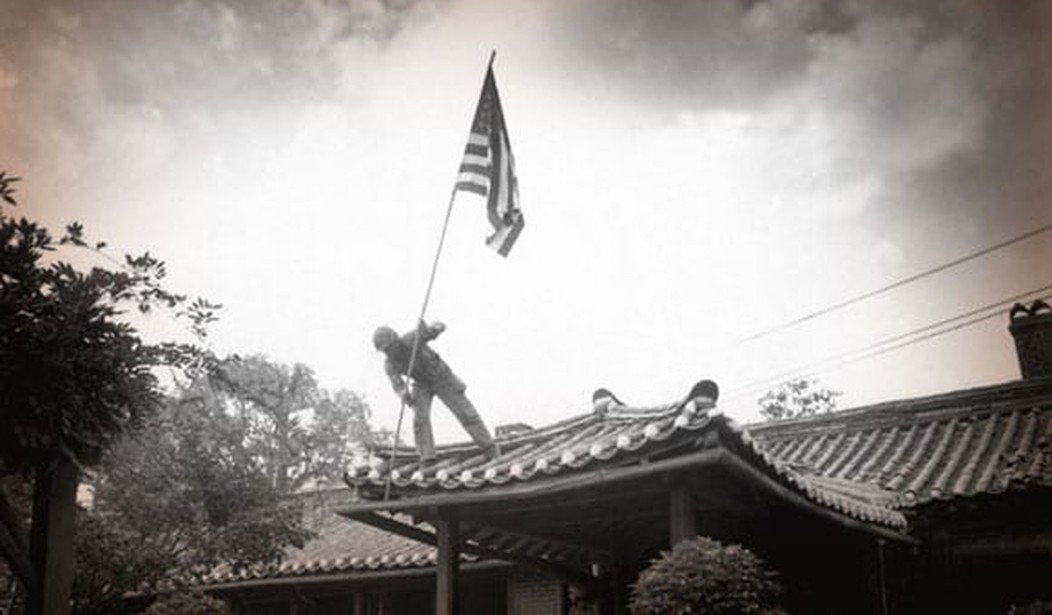Today marks the 69th anniversary of the outbreak of the Korean War. U.S. State Department spokeswoman Morgan Ortagus commented, “The Korean War anniversary is a reminder of allied troops’ selfless bravery and U.S. and ROK resolve to defend liberty against aggression in the past and future.”
North Korea’s invasion of South Korea in 1950 and the subsequent U.S. intervention set the stage for a decade’s long conflict that continues to this day between North Korea and the U.S.
In light of this anniversary of North Korean aggression, it is necessary to examine whether the U.S. has been taking the right approach with respect to North Korea. To do so, we must analyze the history of U.S.-DPRK relations.
Unsurprisingly, after the Korean War, mistrust between the U.S. and DPRK only increased with the capture of 83 crew members in a U.S. spy ship, USS Pueblo, in 1968. The 1969 EC-121 shootdown incident, where a spy plane above international waters was shot down by Northern Korean fighter jets, killing 31 Americans, did not help ties.
The U.S. and the DPRK first began to seriously engage in 1994 when they signed the Agreed Framework: an agreement intended to freeze and replace North Korea’s nuclear power plants with light-water reactors. Because this agreement was the first real instance where the U.S. and DPRK cooperated, it has considerable influence on their relationship and so is critical to examine carefully.
Unsurprisingly, this agreement began in an environment of hope, but there was still intense mutual distrust.
This mistrust began to manifest in accusations of violations of the agreement due to ambiguities in language and implications of the language.
The Agreed Framework highlights that “both sides reaffirmed the importance of… alternative energy… [being] provided in the form of heavy oil for heating and electricity production.” Technically, neither side committed to providing heavy oil only for heating and electricity. Nevertheless, the U.S. accused North Korea of violating the agreement when it claimed that North Korea was diverting a small amount of heavy oil in January 1995 for industrial uses.
Certain public officials also sensed that North Korea violated the principle that it would work for “peace and security” when it landed a three-person special reconnaissance team on the east coast of South Korea in 1996.
Combined with the Republican takeover of the House and Senate in 1994, Republican congressmen started to express their skepticisms of North Korea’s dedication to the agreement and the U.S. began to violate the agreement, delaying its shipment of heavy oil after 1996.
The Agreed Framework totally collapsed in 2002 when U.S. officials claimed that North Korea admitted the existence of a highly enriched uranium program.
In the end, whereas North Korea claims that it did not violate the Agreed Framework, North Korea confirmed its intense mistrust of the U.S. from its first joint endeavor. The U.S. was left with the same sentiment with regards to North Korea.
This heightened mistrust has continued to plague U.S. efforts of engagement with North Korea: the Six-Party talks from 2003 and President Obama’s proposed agreements with Supreme Leader Kim Jong-un have all failed.
This is not to say that the U.S. should begin to trust North Korea, as the DPRK could attempt to take advantage of U.S. naiveté.
Such acts of the DPRK taking advantage of appeasement efforts have been documented by its recent relations with South Korea.
Called the Sunshine Policy, from 1998 to 2006, South Korea provided hundreds of thousands of tons of fertilizer and food to North Korea every year, along with millions of dollars in aid. At the same time, North Korea provoked South Korea into naval battles and refused to reciprocate South Korea’s release of political prisoners.
The U.S. must continue to mistrust North Korea, while acknowledging that North Korea will never trust the U.S.
President Trump has taken an interesting approach with North Korea, willing to tighten the sanctions placed on it, while maintaining friendly rhetoric matched with some concessions, such as the ending of large-scale war games. These concessions have been followed up with North Korean concessions, given the return of all detained Americans, the removal of anti-U.S. propaganda in North Korea, and the return of the remains of American POWs.
Overall, President Trump appears to still maintain a healthy amount of mistrust of Kim Jong-un, refusing to remove troops from the Korean peninsula and maintaining all sanctions. Secretary of State Pompeo embodies this mistrust when he underlines that there will be no sanction relief until the complete, verifiable denuclearization of North Korea.
As President Trump continues to engage with Supreme Leader Kim, he must stand his ground and never give too much, or else he risks threatening what the U.S. did to help South Korea 69 years ago.









Join the conversation as a VIP Member